
Last week, the article I was working on was lost along with two other documents I had open in Word. Some glitch in the program led to it crashing, and three of my unsaved docs just vanished. Usually, I can rely on the recovery feature to save my work when something like this happens, but this time that failsafe failed to save, and the nearly completed article and two other works in progress were wiped out, leaving me to decide: should I begin again, or just scrap it?
I’d put a lot of hard work and research into the article, and starting over would at least preserve some of that effort. But recapturing the spirit of the article, the energy, the artfully crafted turns of phrase (ok, that’s overdoing it)—that would be much harder to achieve.
I was proud of the piece. Nearly finished and in need of only a few final touches, it had taken me almost two weeks to complete (and yes, I should have backed it up more often). It was part of a longer process of planning and info-gathering that had lasted months. I don’t have to elaborate on how heartbroken I was to see all of my efforts come to nothing in the blink of an error message. But, I sensed that whatever I managed to salvage and cobble together from my notes would only be a shadow of the original.
So, with some grief, I decided to scrap it. Not just because rewriting something nearly from scratch is a dispiriting and daunting exercise (and this newsletter is a voluntary endeavor) but because it would inevitably be a colorless facsimile.
But, losing my cherished piece and the tough choice of whether or not to resurrect it (as well as the other two pieces that were trashed) reminded me of how inferior revivals often are. I’m sure I don’t even have to outline how lame—and unnecessary—most movie reboots turn out to be. And more recently, when a fire tragically destroyed Notre Dame’s spire, much of the public was horrified by the radical restoration plans for the UNESCO World Heritage site, which were characterized as “politically correct Disneyland.” Does Notre Dame really need a hip, modern update, or were people visiting to experience the unique 12th century-ness of its Gothic art and architecture?
Indeed, why do so many efforts to resurrect or revamp a defunct object, text, or tradition inevitably lack the vitality of its originators’ vision only to feel contrived, hollow, a pretense?
Sadly, the thing we so earnestly wish to preserve and honor can often be corrupted by those same intentions. When our efforts at revival ring hollow, it is because we have failed, and will on some level always fail, to truly understand the nature of the thing being revived—and perhaps even our own attraction to it. We fail to summon the same passions that inspired the first incarnation, dooming ourselves to a cycle of cheap imitation and parody.
As a writer of historical fiction, this gives me pause, but I also know it’s true. With all my research and empathy, I can aim at authenticity, but I can never really know how my subjects thought or felt. Claiming to is a lie. But that awareness also helps me clarify my writing goals. H.R. Ellis Davidson expresses this well in her introduction to Gods and Myths of Northern Europe:
“We cannot return to the mythological thinking of an earlier age; it is beyond our reach, like the vanished world of childhood. Even if we feel a nostalgic longing for the past, like that of John Keats for Ancient Greece or William Morris for medieval England, there is now no way of entry. The Nazis tried to revive the myths of ancient Germany in their ideology, but such an attempt could only lead to sterility and moral suicide. We cannot deny the demands of our own age, but this need not prevent us turning to the faith of another age with sympathetic understanding, and recapturing imaginatively some of its vanished power. It will even help us to view more clearly the assumptions and beliefs of our own time.”

To be clear, I think there is a difference between the retrograde fervor of so many neo-isms versus the wistful homage shown by the likes of Keats and Morris, or for example, the Pre-Raphaelites, who found artistic inspiration in the ethos and aesthetic of earlier ages, where the themes may be classical or medieval, yet the style is something decidedly new for its time.
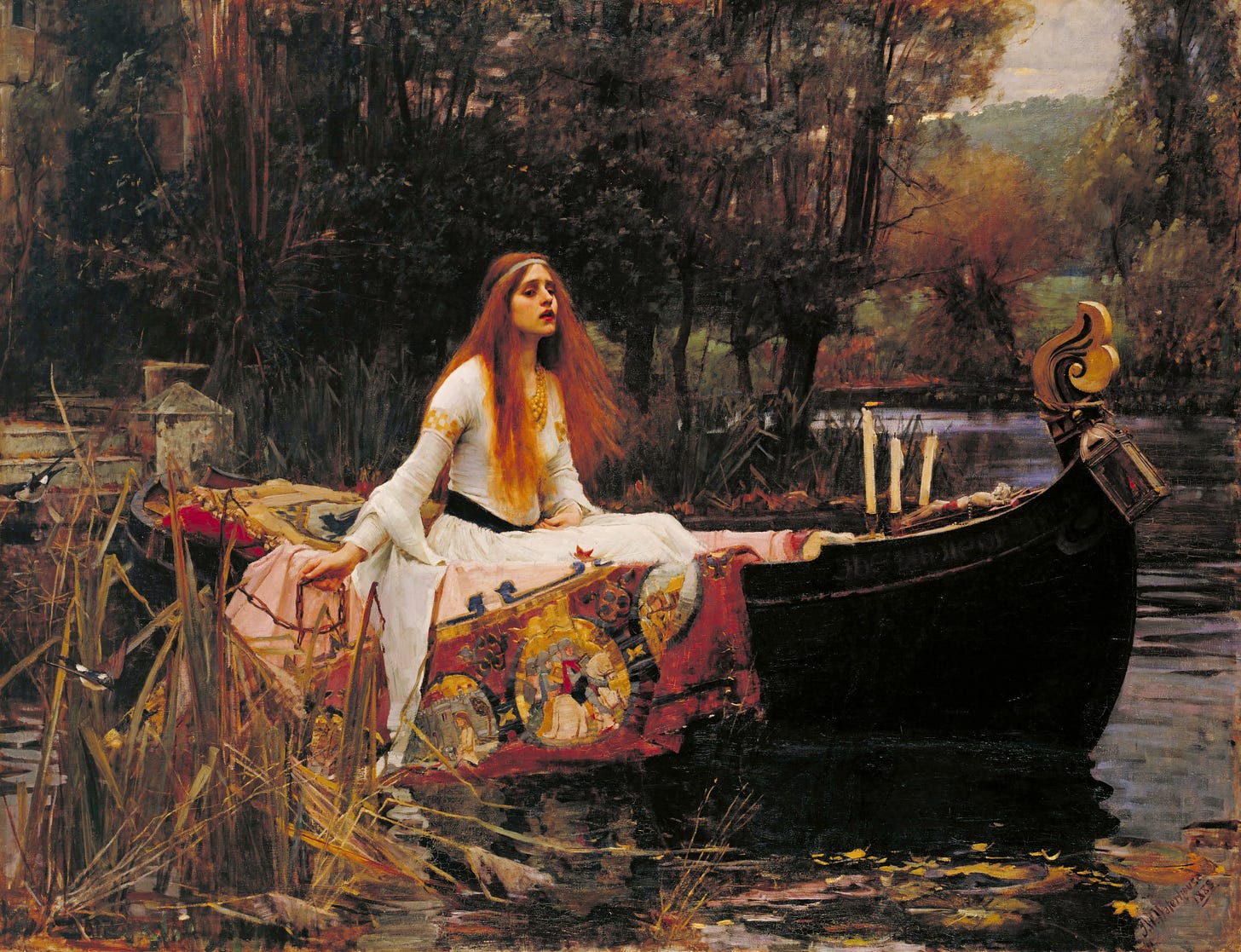
We think of cultural diffusion as working laterally between existing cultures of the same period. But I propose that it also works between cultures separated by decades, centuries, or millennia. Humans are constantly borrowing from each other, remixing our greatest hits, and rediscovering golden oldies. This has been a net positive. Those who cry foul about “cultural appropriation” are barking up the wrong tree. All cultures draw inspiration from others, adopt and adapt ideas, images, objects to their needs, and we should celebrate when we find something that inspires us to new creative or innovative heights.
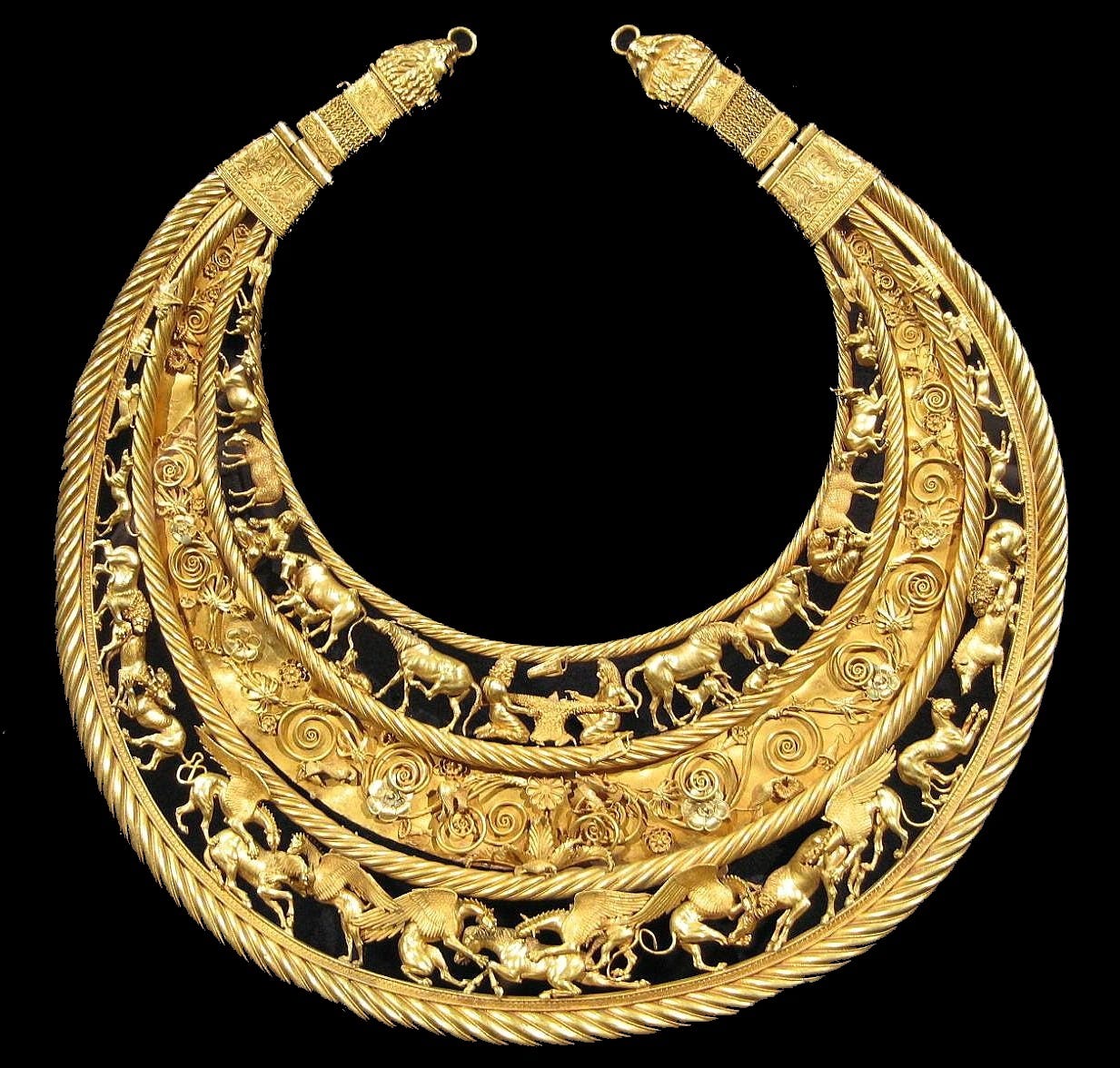
The romantic in me feels a sense of loss that so many ancient traditions are gone. They’re fascinating; I see much to admire in them; and the world was a richer place when we had more, not fewer, philosophies and perspectives to consider. While I don’t fool myself about the dark side of any tradition, in many respects, they were more open and accepting than the monotheistic religions that dominate today, incorporating numerous concepts of the divine, foreign deities, and forms of worship. And they were wildly creative. I wish societies like the one that created this had a chance to continue and evolve:
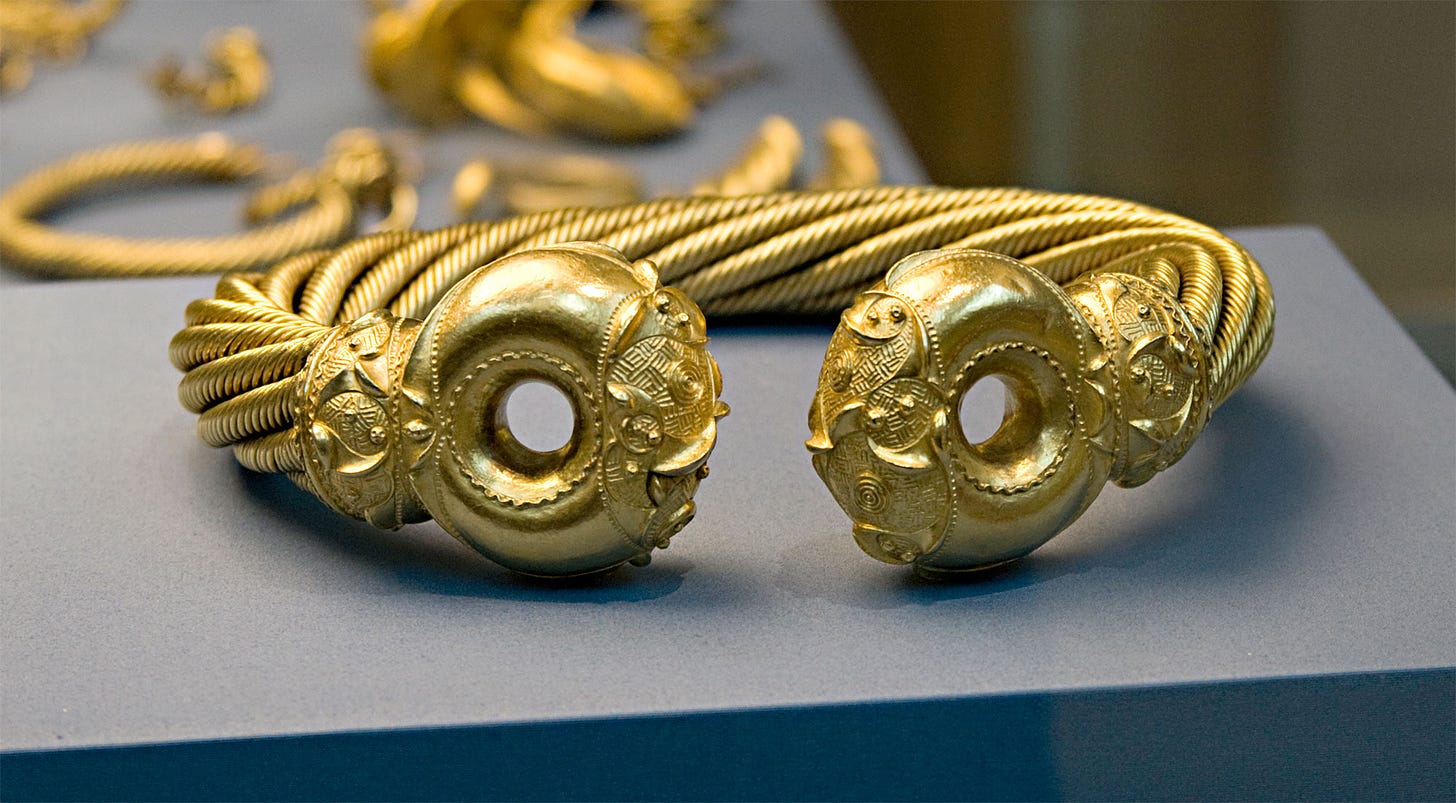
Or societies that envisioned the relationship between gods and nature like this:
We’ll never know what they might have become. Perhaps something glorious; perhaps monstrous. Or maybe their fate was inevitable, as a kind of cultural Darwinism selected against them, and their own political dysfunction allowed them to be overrun by an aggressive new ideology and administrative machine. But in the hypothetical realm of “what if?” I can’t help but imagine how different our world could be had they not.
I suppose that is where the anthropology nerd and the fiction writer in me meet. I like to imagine. To give that beautiful, mysterious world a place to exist, even if transiently, insubstantially. Ancient cultures appeal to me in ways modern ones just don’t. So, I’m sympathetic to those who wish to revisit them more deeply and even see them alive again in some form. But I know if realized, the thing reanimated would be grotesque—a kind of Frankenstein’s monster, assembled from parts dug from the ground, scavenged scraps, and imagination.
Restoring an ancient monument from scattered fragments still results in a ruin. Which, for me, takes nothing away from it. It simply means that, like so many things over time, it has outlived its original purpose. I enjoy ruins especially. We can remember the past, draw inspiration from it, and even revisit it from time to time. We can walk through the remains of monuments. But we’re just guests there. We can’t stay. Not for long. We’ll never inhabit them—not in the intimate, awestruck way their builders did. We’ve explored the depths of the oceans they couldn’t yet cross. We’ve satellite-mapped every corner of a world they only knew through rumor. Men have walked on the Moon they once held to be divine. Knowledge is the gatekeeper barring our return to that Eden of innocence, of wonder.
But we carry much with us as well. While I lament that so many ancient cultures have gone extinct, I also remind myself that rarely is a culture or its people completely gone or forgotten. Memories and traditions survive even after dramatic cultural shifts, and many old beliefs, practices, and customs live on in some form. We still have traces of art, literature, folklore, music, dance, and festivals that go back centuries or even millennia. Not everything has been lost.
As a writer of historical fiction and an amateur archaeologist, I obviously think understanding the past is vitally important. It’s also a library of unsolved mysteries, and an exercise in imagination, empathy, and awe. It is our foundation, and we discard or smash it at our peril. We should be grateful for the events and people—glorious and terrible—that gifted us the present moment in all its shock and wonder. Appreciating history is essential to anchoring ourselves in the present. Gratitude for our rich heritage is essential for constructing a meaningful future. And there are troves of inspiration in the past for the taking if we’re willing to make the journey. So long as we don’t get lost there. In the consolation or exoticism of antiquity. In refuge from the disappointments of a disconcerting present and an indifferent future. In the romanticism of ages burnished and buffed of their battle-scarred edges so they shine brightly. On dark paths cleared of their thorny brambles, so they travel cleanly without pricks and stings.
We can speculate. We can dream. But we can never go back.
Have you ever lost a work in progress? Did you start over or scrap it?
How do you feel about historical reenactments, Renaissance fairs, Medieval tournaments, etc? Good times or weird costume parties?
When choosing a historical film, tv show, play, or book, which do you want more: authenticity or entertainment value?





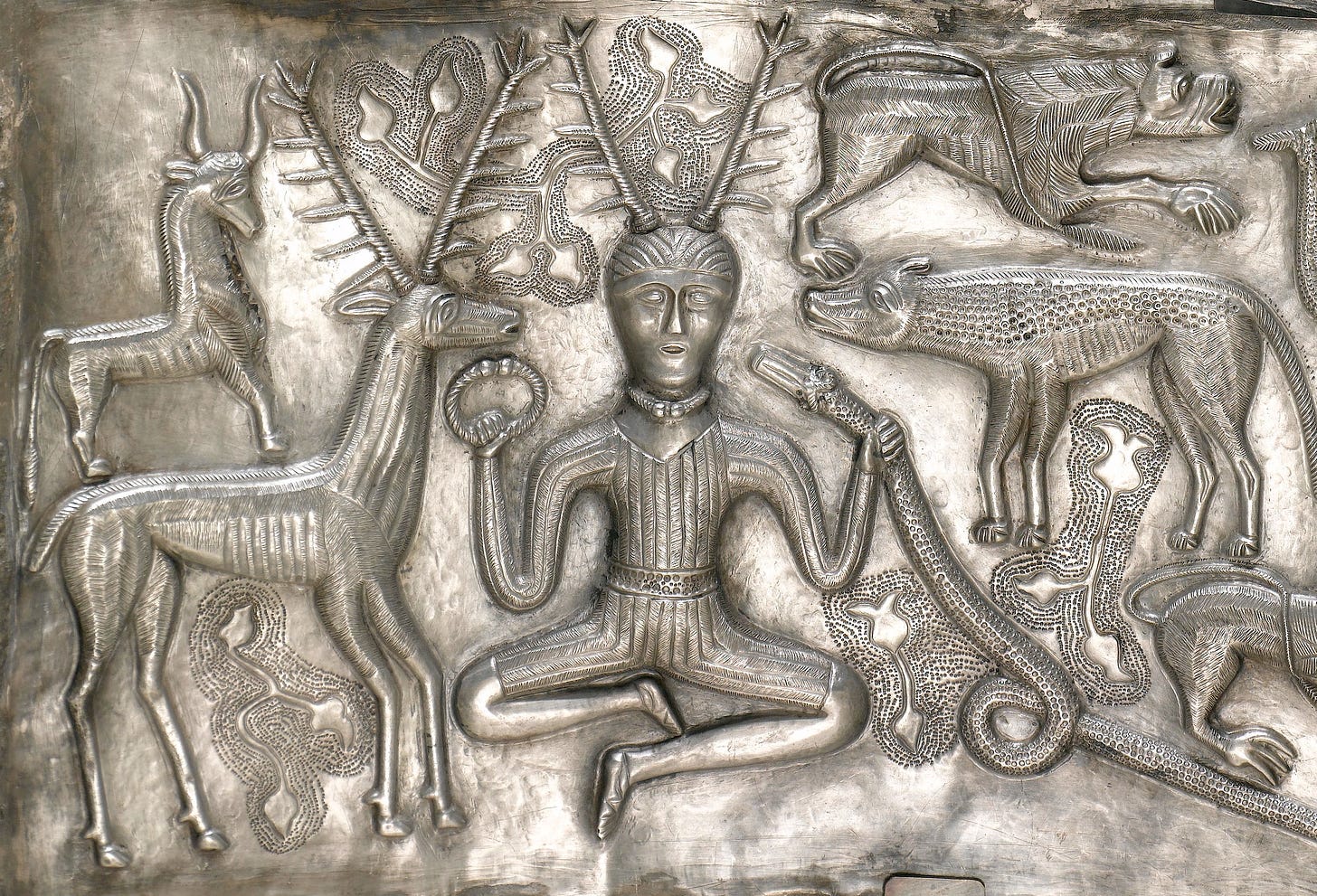


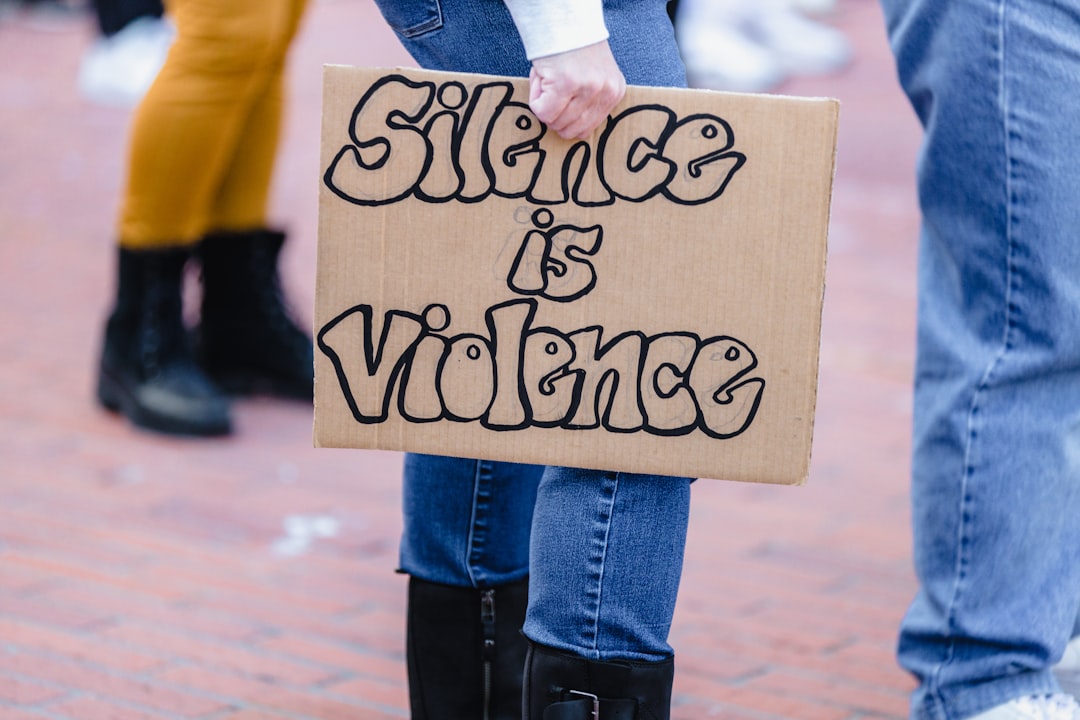


Enjoyable read J.M. Be heartened to know that your lost piece is out there somewhere.
On the shoreline of this high alpine lake are emerging the ruins of an ancient civilisation hardly anyone has knowledge of. As if, once lost, they are saying "Time to Shine."
Answers to questions: 1/No. 2/ Good times at weird costume parties! 3/ Authenticity (which, when written well is entertainment enough.)
Phenomenal piece! You captured how I feel almost exactly, although I hadn't given it any focussed thought before reading this. Good writing. I wanted to be an archeologist when I was a boy. I also lost a piece, although it was only a morning's work. I wrote about it here: https://ryanwinfield.substack.com/p/the-edges-of-the-day?r=b6ynm&s=w&utm_campaign=post&utm_medium=web